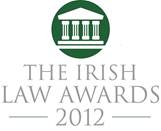<<<
Chronological Index
>>>
Thread Index
>>>
locking of a domain
- To: "udrp-locking@xxxxxxxxx" <udrp-locking@xxxxxxxxx>
- Subject: locking of a domain
- From: William Clarke <William@xxxxxxxxxxxxxxxxx>
- Date: Thu, 26 Jul 2012 08:26:53 +0000
We are a specialised IP/ IT law firm, who deal directly with these disputes on
a daily basis for clients (both registrars, registrants and sometimes the
complainants). It is our experience that many issues arise in relation to the
on-going use of a domain on foot of a UDRP. It would seem very practical, that
where there is a UDRP in place, then there should be formal SPECIFIC rules
governing the lock down of domains. This will benefit both the registrar and
the registrant in that it gives clarity to everyone's position. The danger (at
present) with this situation, is that liability could accrue for the registrar
on foot of a lock down due to lost business or damages from the Registrant.
Even though the lockdown would allow proper investigation, it may still cause
damage, and where a registrant is successful in defending a claim, then the
lockdown could be seen as 'a step too far', or something done in haste. The
current procedure restricts Registrars greatly, in that it does not allow
proper time to investigate matters, and it leaves any action which they carry
out, open to attack from all parties.
It is my opinion there should be a confirmed time frame after a UDRP has been
made and receipted by the UDRP nominated body (WIPO, NAF, etc). For clarity,
the following should be provided to allow for a domain lockdown:
1. The actual written complaint,
2. The Registrants receipt of the claim,
3. The UDRP nominated bodies receipt of the claim.
Once the above are received by the Registrar, then this will allow lockdown of
a domain. The time frame for lockdown runs from the date of receipt of all
these documents, and will allow lockdown for up to 48 hours. In this time, no
movement of the domain can take place by any party. Once locked down, the
domain can remain off line for a further specific period (somewhere in the
region of 48 hours) to allow a full review of the matter. This time frame can
be extended where the circumstances warrant same.
The definition of a locked domain should be included. Again clarity and
simplicity is the key to this definition. It should also make reference to the
fact that the domain will not be altered in any way in this lockdown process.
This will again assist in safeguarding all concerned parties rights. The
information for the domain should only be changed on foot of a an actual
decision. Many thanks for the opportunity to assist in this process.
William Clarke is a specialised internet law solicitor and Partner in Clarke
Jeffers Solicitors
William Clarke
Partner
[Description: LOGO]
Clarke Jeffers & Co
Solicitors
30 Dublin Street,
Carlow.
(T) 059 91 31656
(F) 059 91 32257
www.carlowsolicitors.com<http://www.carlowsolicitors.com/>
The Internet law Specialists
Find us on facebook and linkedin
http://ie.linkedin.com/pub/william-clarke/31/4ba/594
Nominated for Irish Law Firm of the year
[Description: Law-Awards-Logo-High-Res]
Scan here with I Phone or Android to visit our website
[Description: Description: qrcode]
This communication and any files transmitted with it are confidential and
intended solely for the use of the individual or entity to whom they are
addressed. If you are not an addressee, any use, dissemination, distribution,
publication, or copying of the information contained in this communication and
files is strictly prohibited. If you have received this communication in error,
please notify us immediately and delete this communication from your system or
otherwise destroy it.
It is possible for data transmitted by email to be deliberately or accidentally
corrupted or intercepted. For this reason, where the communication is by email
Clarke Jeffers & Co Solicitors do not accept any responsibility for any breach
of confidence which may arise through the use of this medium



<<<
Chronological Index
>>>
Thread Index
>>>
|


